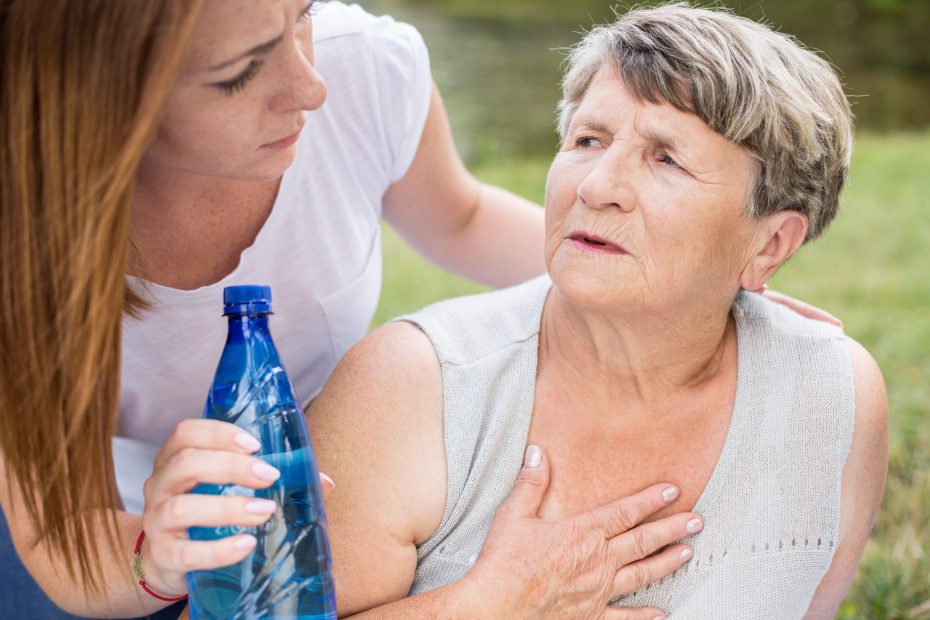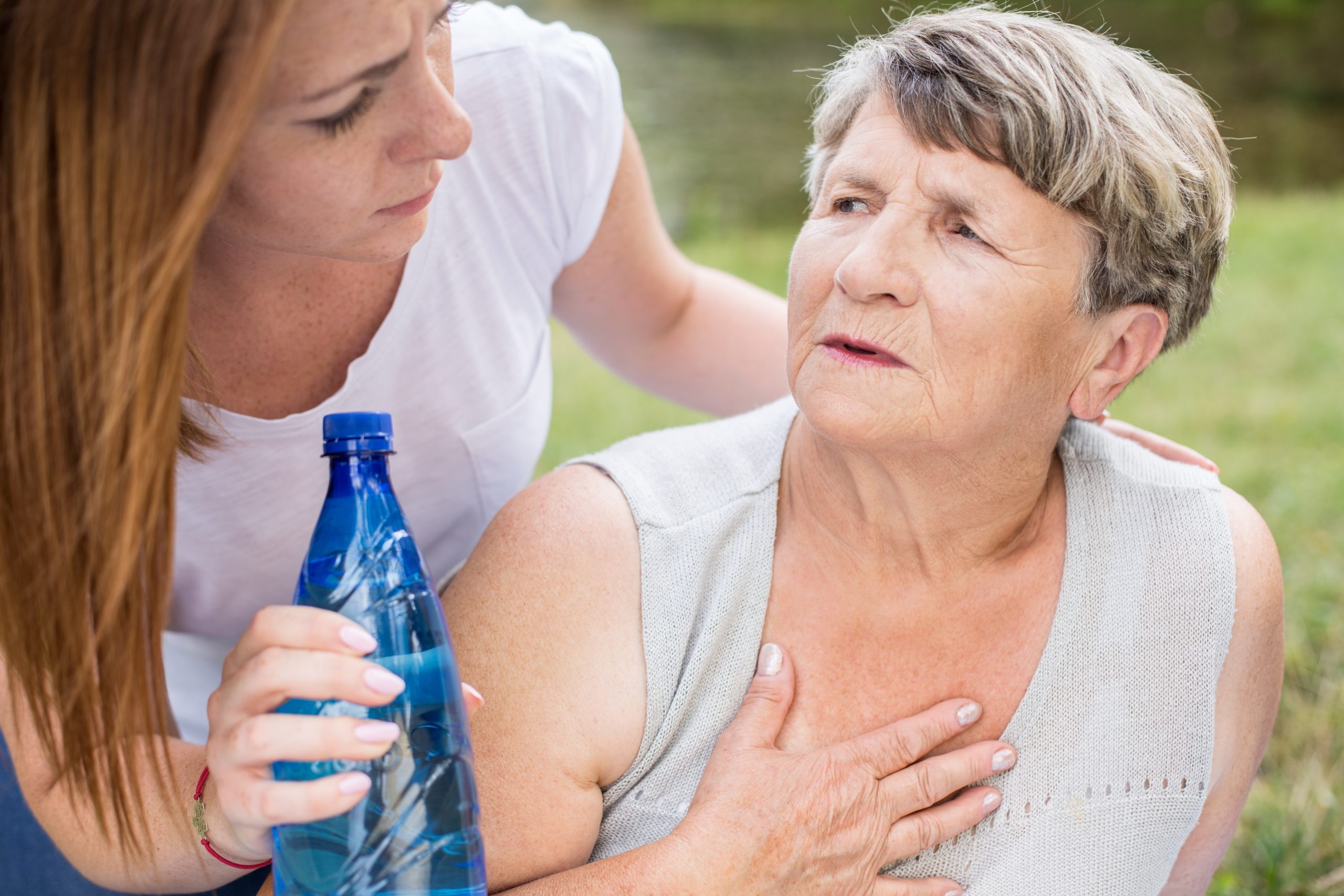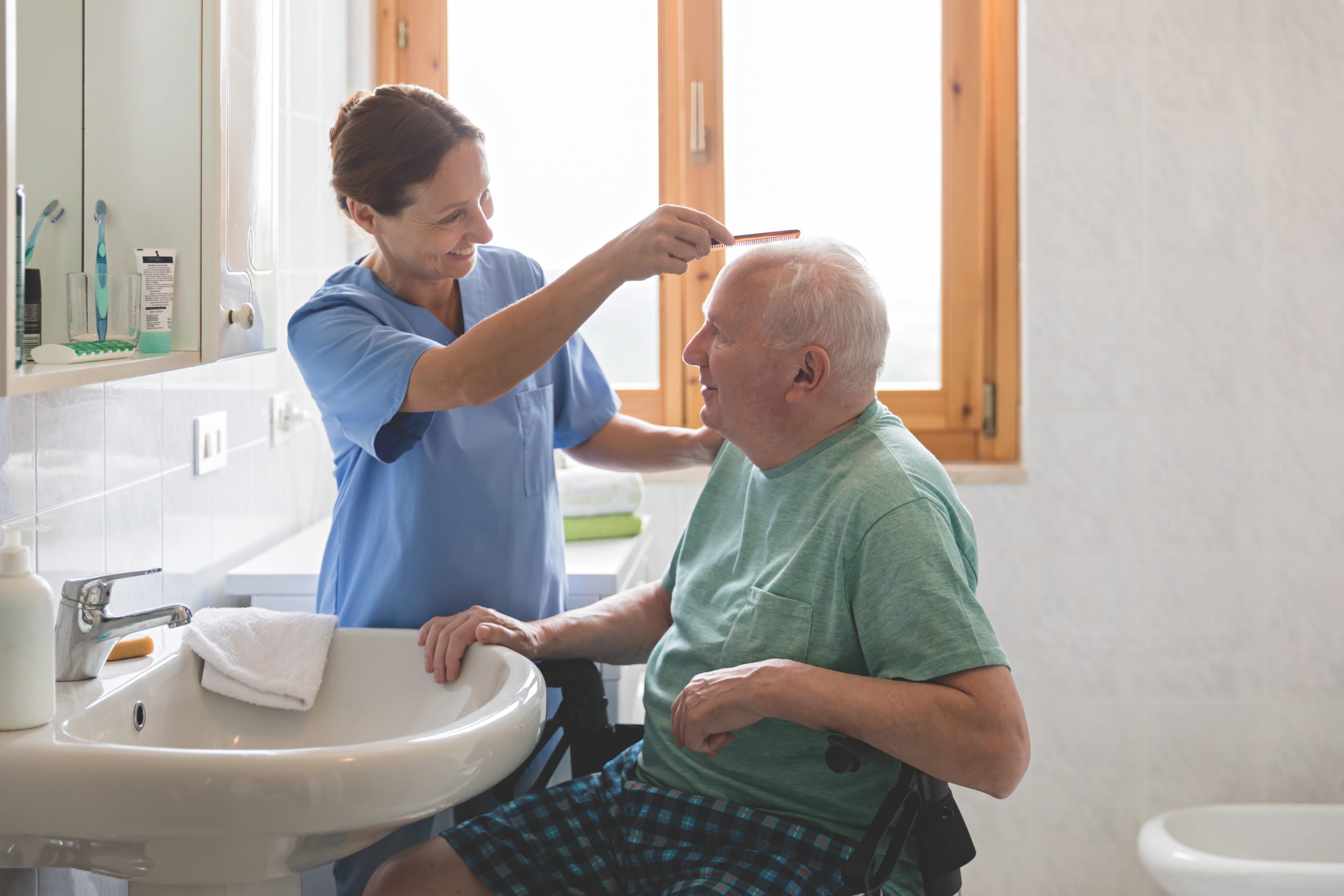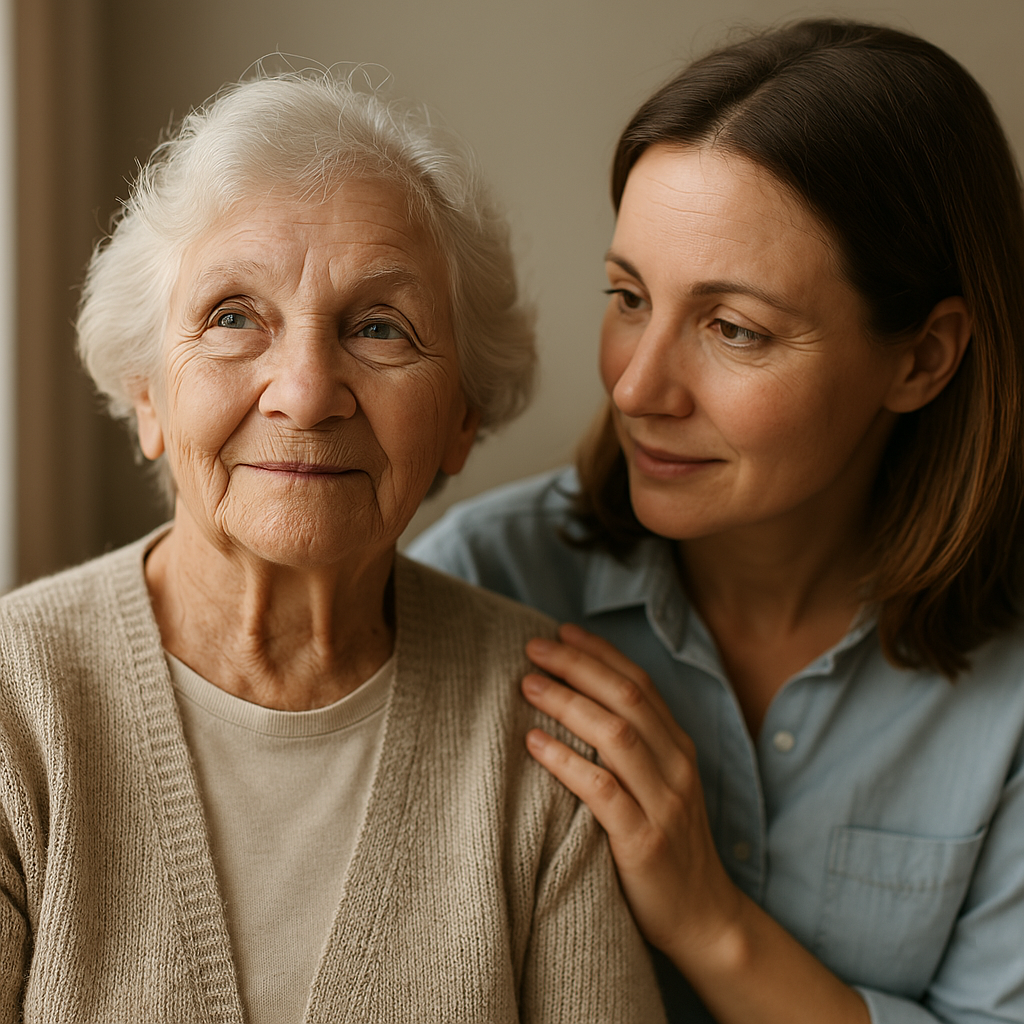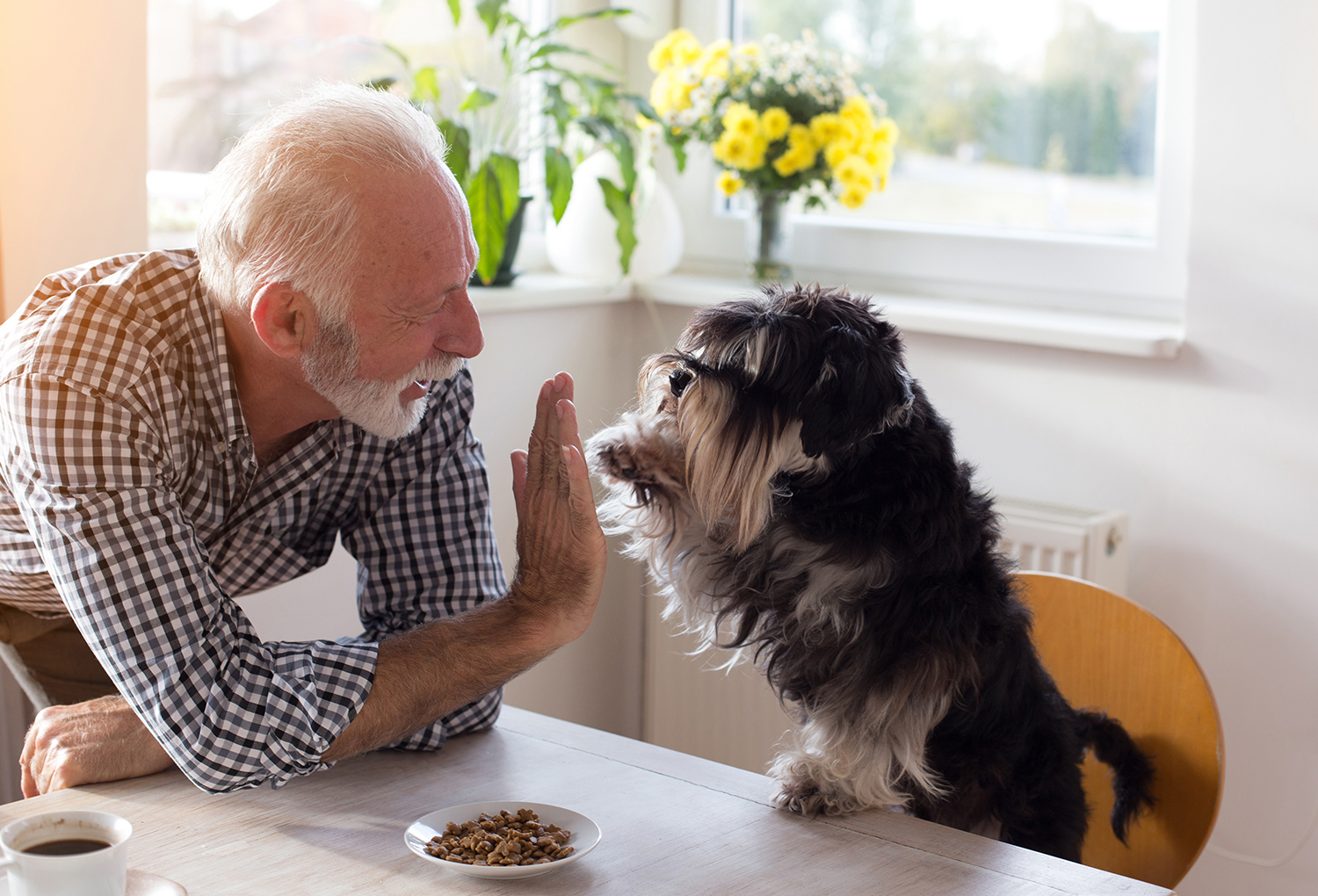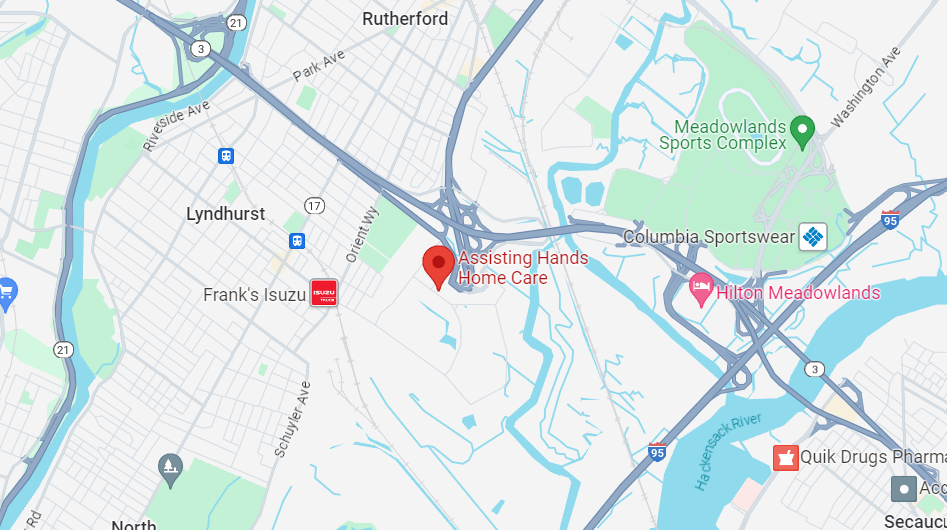Pneumonia a serious lung infection that affects many seniors every year, with potentially severe impacts on respiratory health and overall well-being. In this article, we’ll explore how seniors develop pneumonia, how it impacts their bodies, when hospitalization may be necessary, and how seniors can best recover.
How Do Seniors Get Pneumonia?
Pneumonia in seniors often results from various risk factors, including:
- Weakened Immune Systems: With age, the immune system becomes less robust, which makes it harder to fight infections like pneumonia. This can be due to both natural aging and underlying health conditions.
- Chronic Health Conditions: Conditions such as COPD, diabetes, and heart disease can limit lung function, weaken immune response, and lead to increased susceptibility to lung infections.
- Exposure to Pathogens: Pneumonia is commonly caused by viruses, bacteria, or fungi, all of which spread through droplets in the air. Seniors, especially in communal settings, may have higher exposure to these pathogens.
- Limited Mobility: Physical inactivity can reduce lung strength, allowing mucus to build up in the lungs, which can increase the risk of infection.
- Flu and Respiratory Infections: Pneumonia often develops as a complication of other respiratory illnesses, like the flu. This is why vaccination and preventive measures are especially important for seniors.
For more information on pneumonia in seniors, visit trusted resources like Mayo Clinic and the Centers for Disease Control and Prevention (CDC).
How Does Pneumonia Affect the Body?
Pneumonia causes inflammation and fluid buildup in the lung air sacs, reducing oxygen intake and leading to symptoms such as:
- Breathing Difficulty: With inflamed air sacs filled with fluid or pus, oxygen struggles to enter the bloodstream, leading to symptoms like shortness of breath, rapid breathing, or wheezing.
- Fatigue and Weakness: Fighting the infection can drain the body’s energy, often leaving seniors feeling extremely tired and weak.
- Chest Pain and Persistent Cough: Pneumonia often causes a painful, persistent cough as the body tries to clear mucus from the lungs.
- Fever and Confusion: High fever, chills, and night sweats are common in pneumonia. In severe cases, low oxygen levels can cause confusion or delirium in seniors.
If you’re looking for more details on pneumonia symptoms and body effects, consider reviewing information from Johns Hopkins Medicine.
When is Hospitalization Necessary?
For some seniors, pneumonia can be managed at home. However, hospital care becomes essential if there are severe symptoms such as:
- Breathing Issues: Difficulty breathing or very low oxygen levels may require immediate medical intervention.
- Confusion or Disorientation: Sudden changes in mental state may signal low oxygen levels or an intense infection.
- Persistent Fever: A high fever that doesn’t improve with medication may indicate a need for IV antibiotics.
- Other Health Conditions: Seniors with heart disease, diabetes, or respiratory conditions often require closer monitoring in a hospital setting.
For additional guidance on when pneumonia hospitalization is essential, explore resources from Cleveland Clinic.
How Home Care Services Can Support Pneumonia Recovery
Home care services can make a significant difference in a senior’s recovery from pneumonia, providing tailored support and a comfortable, safe environment that eases the healing process. Here’s how Assisting Hands can help:
- Medication Reminders and Assistance: Ensuring seniors take their medications on time and follow their prescribed treatment plan is essential. Caregivers from Assisting Hands provide reminders and can help with setting up medication schedules.
- Meal Preparation and Hydration: Balanced, nutritious meals and adequate hydration are vital for recovery. Caregivers can help prepare meals that are easy to digest and packed with nutrients to boost immune strength.
- Breathing and Mobility Support: Assisting Hands caregivers can guide seniors through breathing exercises and light movement routines, enhancing lung capacity and supporting circulation. Gentle assistance with walking or light exercise can also aid recovery.
- Personal Hygiene and Daily Assistance: Recovering from pneumonia can make routine tasks like bathing and dressing challenging. Our caregivers provide dignified, respectful assistance with daily activities, ensuring seniors stay comfortable and well-cared for.
- Monitoring and Coordination: Caregivers are trained to monitor seniors for any signs of worsening symptoms and can alert family members or healthcare providers if additional medical support is needed.
Assisting Hands Home Care’s options are flexible and varied, ranging from respite care and dementia care to 24-hour care and post-operative care. We are privileged to serve seniors in Rutherford, New Jersey.
Schedule a free in-home consult at (551) 239-8651 and discover the benefits of compassionate elder home care.

Abhi Mitra founded Assisting Hands Hudson County after recognizing the significant value of personalized and excellent care through family experience, specifically in caring for his grandmother. His expertise in program management, along with a genuine desire to make a positive difference in people’s lives, motivates him to provide the same level of care that his grandmother received. He obtained an MS degree from Pace University, New York, and a Certificate of Executive Healthcare leadership from Cornell University, Ithaka, NY. Abhi efficiently manages tasks with kindness and intelligence, ensuring everyone feels comfortable and welcome. He excels in problem-solving and puzzles while maintaining smooth operations at the agency and ensuring everyone receives high-quality individualized care. His dedication to his work and compassionate nature greatly improves the quality of life for the seniors under his care, providing them with a comfortable and joyful environment. Abhi ensures the highest possible quality, providing reassurance to everyone. His dedication and caring nature contribute to creating a comfortable and joyful environment for those he assists. He enjoys biking, taking walks, and watching cricket with his family and friends.

